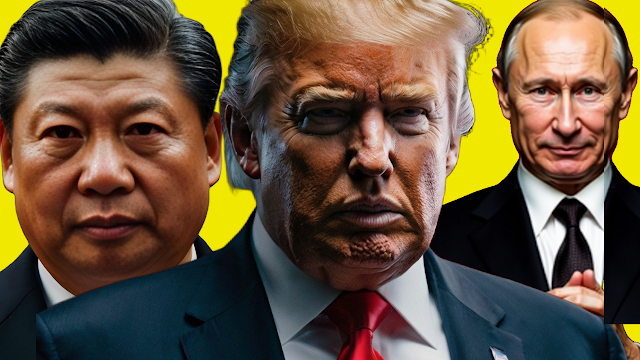Why Greenland Matters: The U.S., Trump's Vision, and the Geopolitical Chessboard
 |
| greater america |
Greenland, the largest island in the world, is more than just an icy expanse. It’s a geopolitical treasure trove that has attracted the attention of world powers for centuries. Former President Donald Trump's proposal to purchase Greenland reignited global debate, intertwining issues of sovereignty, natural resources, and Arctic strategy.
This blog explores why Greenland has become such a strategic focal point, its relationship with Denmark, its push for independence, and the broader implications of U.S. interest in the Arctic.
Greenland’s Strategic Importance
1. Military Significance
2. Natural Resources
3. Arctic Shipping Routes
Trump and Greenland: A Controversial Proposal
 |
| donald trump |
In 2019, Donald Trump publicly expressed interest in purchasing Greenland, calling it a "strategic necessity." This wasn't the first time the U.S. showed interest in the island; negotiations date back to the 1860s. However, Trump's approach was bold, involving potential tariffs against Denmark and economic leverage.
Why Does Trump Want Greenland?
Arctic Dominance: Control over Greenland would bolster the U.S.’s position in the Arctic, countering growing Russian and Chinese influence.
Economic Potential: Rare earth minerals and potential oil reserves offer long-term economic benefits.
National Security: Strengthening defense capabilities in the region aligns with broader U.S. military strategies.
The Danish Perspective
Greenland’s Push for Independence
 |
| GreenLand |
Greenland has long sought independence from Denmark, driven by a desire for self-determination and control over its natural resources. Pro-independence parties dominate local politics, and public sentiment favors eventual sovereignty. However, challenges remain:
Economic Dependency
Greenland relies heavily on Denmark’s annual grant of $500 million, a lifeline for its economy. Gaining independence would require substantial economic restructuring, possibly including partnerships with nations like the U.S. or China.
Environmental and Social Concerns
The island’s fragile ecosystem and small population (around 55,000 people) mean balancing economic growth with sustainability is critical. Additionally, preserving indigenous culture and autonomy remains a priority for Greenlanders.
The Arctic Geopolitical Chessboard
Greenland’s future is intricately linked to the broader dynamics of Arctic geopolitics. The region has become a hotspot for global powers, including the U.S., Russia, and China, vying for influence.
 |
| Russia-china-america |
1. Russia’s Arctic Ambitions
2. China’s Growing Presence
3. U.S. Strategy
Greenland’s Natural Wealth
Rare earth minerals, such as neodymium and dysprosium, are among Greenland's most valuable resources. These minerals are critical for renewable energy technologies, smartphones, and military equipment. The island’s resource potential is so vast that it has sparked interest from companies and governments worldwide.
Challenges to U.S. Acquisition
While Trump's interest in Greenland brought the island into the spotlight, acquiring it faces significant hurdles:
Global Backlash: A U.S. attempt to purchase or coerce Greenland could lead to diplomatic fallout, especially with Denmark and Arctic nations.
Local Resistance: Greenlanders prioritize independence and cultural preservation, making U.S. acquisition unappealing.
Denmark and Greenland: A Complex Relationship
Greenland’s relationship with Denmark is a mix of autonomy and dependence. While Denmark oversees defense and foreign policy, Greenland manages its internal affairs. The debate over independence has raised questions about Denmark's future role and Greenland’s ability to thrive as a sovereign state.
 |
| america-greenland-denmark |
The Future of Greenland
As Greenland navigates its path toward potential independence, its strategic importance will only grow. Whether through partnerships, investments, or alliances, the island is poised to play a pivotal role in the Arctic’s future.
Greenland is more than an icy expanse; it’s a geopolitical prize that sits at the crossroads of military strategy, natural resources, and global power dynamics. As the Arctic continues to thaw, the island’s role in shaping the future of geopolitics cannot be overstated. While Trump’s proposal to purchase Greenland may have been controversial, it underscored the island’s undeniable significance on the world stage.
For the U.S., maintaining strong ties with Greenland—whether through diplomacy or strategic partnerships—will be essential for securing its interests in the Arctic and beyond.
.jpg)
Comments
Post a Comment